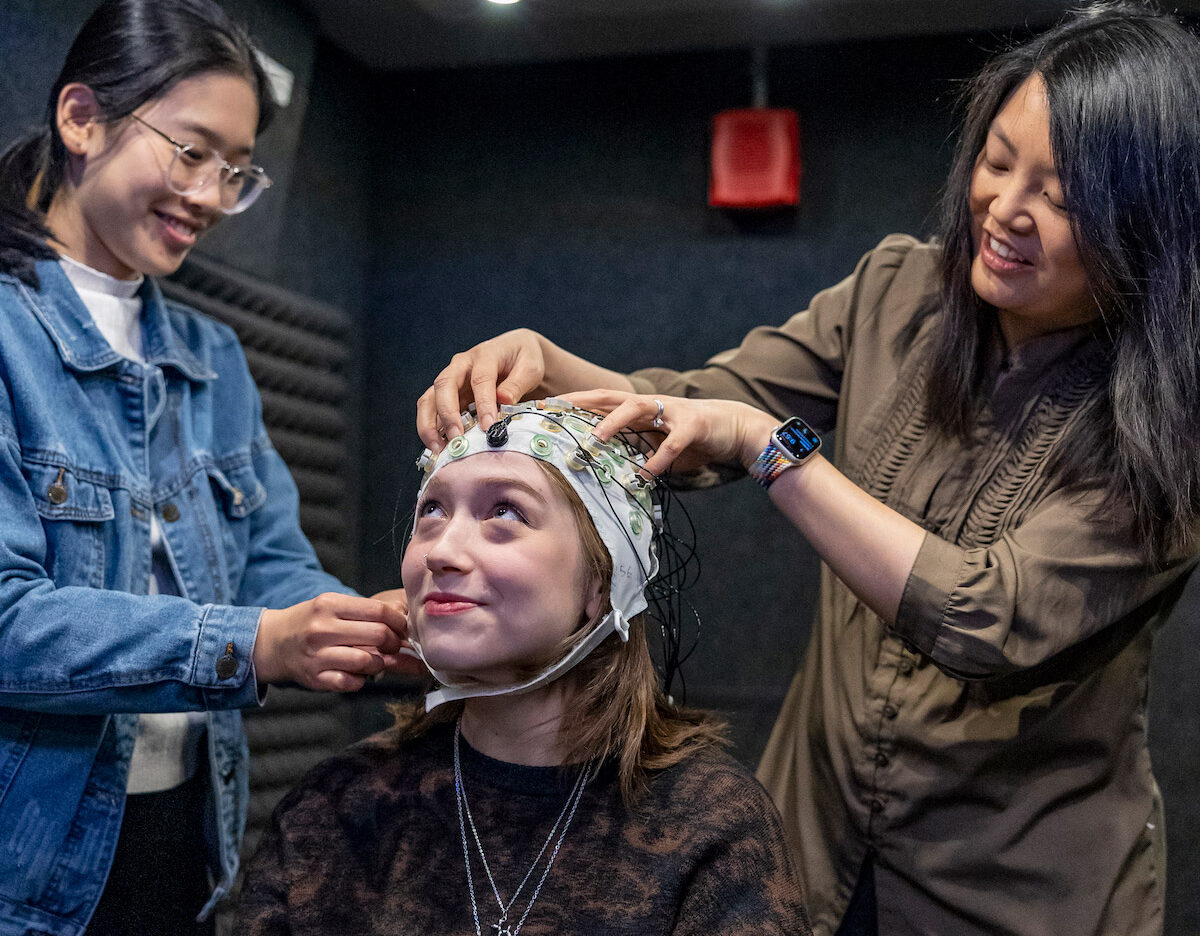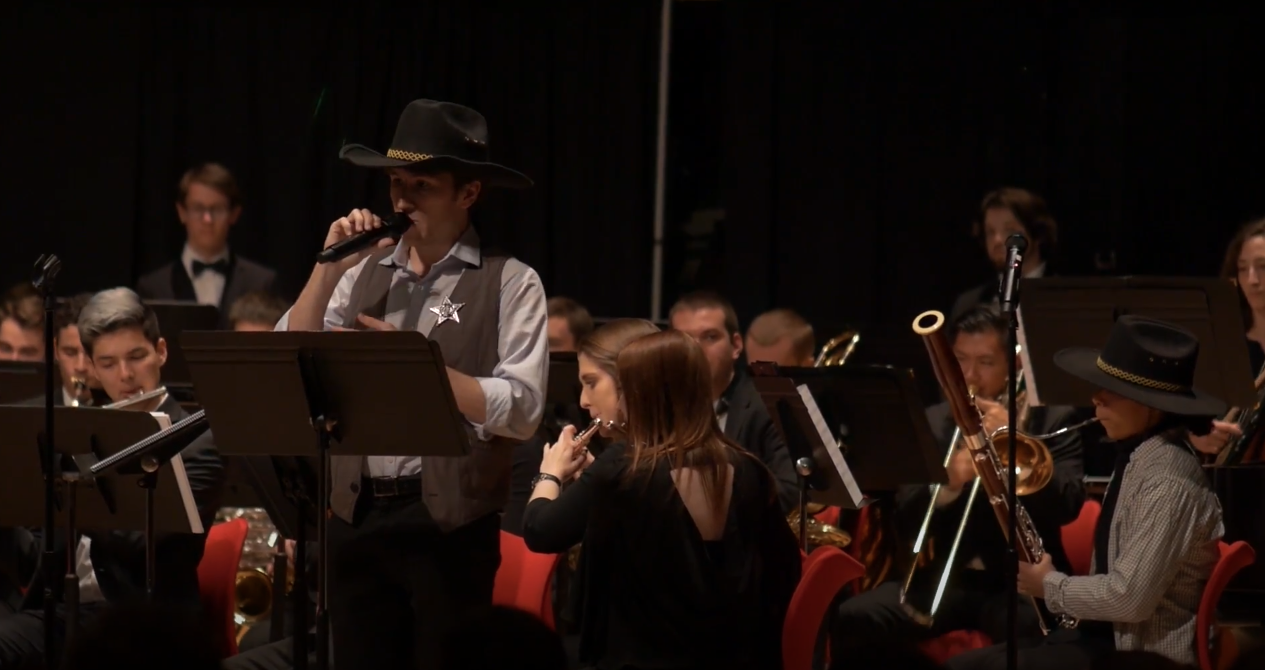Career Opportunities
- Advocacy
- Arts administration
- Culture writer
- Editor
- Ethnomusicologist
- Music critic
- Music theorist
- Musician
- Musicologist
Multidisciplinary Skills
- Research and analysis
- Critical reasoning
- Critical listening
- Persuasive writing
- Public speaking
- Creativity
- Improvisation
- Cross-cultural knowledge
Co-op Opportunities
- Boston Symphony Orchestra
- Rolling Stone
- World Music/CRASHarts
Share
The scope and sequence of psychology courses provide students with a foundation in the interdisciplinary science of psychology, including such topics as cognition, psycholinguistics, perception, and the biological basis of behavior. Music courses provide a foundation in music theory; creative music in context; contemporary/ethnomusicology; music perception and cognition; and the psychoacoustics of music. Students completing this program of study should be able to understand how the two fields jointly contribute to explaining human behavior in the domain of music.
Program Outcomes
Students graduating with a B.A. in Music are expected to have acquired the following competencies:
Musical Aptitudes
- To identify and apply the fundamental principles behind the melodic, harmonic, rhythmic, and formal components of music from a variety of time periods and cultures.
- To hear, identify, and work conceptually with the elements of music, including intervals, scales, chords, meters, rhythm, melody, harmony, modulations, structure, and other elements.
- To understand the basic principles and structures of at least three or four other systems of musical performance, including improvisation from genres, cultures and ethnicities beyond the European/North American “classical” canon.
Cultural Knowledge and Analytical Skills
- To demonstrate a familiarity with the broad trajectory of music and its history up through the present day.
- To demonstrate an understanding of listening, aesthetic properties of style, and the ways these shape and are shaped by artistic and cultural forces.
- To identify and define musical, aesthetic, and cultural styles, the lives and processes of composers, the activities of performers and performance traditions, and the technological advances that have affected musical production from centuries past to the present in all parts of the world.
- To integrate a broad range of cross-disciplinary and cross-cultural knowledge into a comprehensive understanding of music, aesthetic properties of style, and the ways these shape and are shaped by artistic, cultural, societal and political forces in cultures around the globe.
- To demonstrate the ability to write fluently about music, its history, evolution, cultural meaning and social impact (These skills should be transferable such that students who concentrate in the BA in Music will be able to apply for a broad range of jobs once they graduate).
Research Skills
- The ability to think critically, write, and present musical analyses and research.The ability to present original research, both written and oral through developing a primary (& possibly secondary) area of interest.
Note: Following successful completion of the capstone class, students should have built a portfolio of projects and papers that will aid them in applying for jobs or graduate school






